Sarah Allen's Blog, page 29
July 30, 2013
Answers from a Book Reviewer: Interview with Lori Hettler
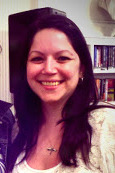 Hey guys! One thing that is incredibly important to us writers is getting reviews. Positive reviews, hopefully, but reviews. So today I thought I'd take the opportunity to ask one of the fabulous book bloggers around the interwebz a few questions about how to get buzz for our books, and making it good buzz.
Hey guys! One thing that is incredibly important to us writers is getting reviews. Positive reviews, hopefully, but reviews. So today I thought I'd take the opportunity to ask one of the fabulous book bloggers around the interwebz a few questions about how to get buzz for our books, and making it good buzz.So please give a warm welcome to the wonderful Lori Hettler.
1. First things first. What kind of books do you review and how does a writer get you to review theirs?
I prefer to read and review small press literature. The edgier, the better. I can’t seem to get enough of it. And it doesn’t help that there’s never enough time to read it all, either. It’s absolute torture.
Even still, I’ve been known to accept genre literature and self published novels for review if they are pitched well and catch my interest. A well pitched book will definitely get my attention. I’m more likely to take a chance on a book I wouldn’t have normally read if the author personalizes the pitch, something as simple as naming books I’ve reviewed that are similar to theirs in style or theme. It also helps to have links to the book, access to an excerpt… and I’m a bit of a goodreads snob. If the book isn’t listed on goodreads, I tend to turn it away or recommend that the author add it there.
2. What can a writer do to make themselves and their book stand out to you and to your readers?
Well, as I mentioned, a strong, personalized pitch certainly makes a book stand out.
If the author comes highly recommended from other authors I’ve read, that’ll definitely get me to look at it. The small press publishing world is so interconnected, and they’re passionate about each others books. They are incredibly supportive of each other, and I eat that shit up. If I read you and loved your book, and you recommend me to an author you’ve read and loved, I’m all over that.
But wait, I’m not sure that answers your question, does it, cause in that case, the writer is not the one pitching his book to me… Hmmm…
Other things that help a book stand out? A great cover. Nothing makes me cringe more than a crappy cover. And a well edited book, that’s a huge win in my eyes. If I’m reading your book, and catching grammatical errors, I’m eye-rolling myself through it. I’m no grammar expert, so if I’m noticing, it’s got to be baaaaad.
Making the book stand out to my readers would really fall on me… right? The way I review what I’ve read can influence my readers to either take a chance on it or run away from it. And I always keep my readers in mind when I review a book. I use a rating scale that rates a book by what I think others would like, not so much what Ilike. In the rating, I recommend the books to fans of XXXXX or people looking for XXXXX. I think that helps them make the decision for themselves, rather than me making it for them, you know?
3. Describe a writer who is the easiest possible person to work with.
You mean without naming names, right? Like, listing their personality traits? I love authors who don’t let my feelings about their book get in the way of our interaction with each other. Authors who don’t check in on whether or not I’ve read their book 20 times. Authors who jump at every opportunity to whip something up for my blog because they like the challenge and find my silly ideas fun and interesting. Basically, someone who’s not just a book-puppet, but an actual human being with an actual personality who can separate themselves from their writing and just be.
4. What is the difference between a book that gets a positive review and a book that sends you out into the streets screaming “You all must read this book!!!”
The difference between “This was book was really good” versus “Oh my god, I would marry this book immediately if marrying inanimate objects were legal!”? That’s a tough one. I don’t know if I could describe the difference. It’s really just something I feel, something visceral. If I just instantly start crushing on the book and its author… it’s a run out into the streets screaming kind of book, or if I’m gulping it down in one sitting while freaking out because reading it fast means it’ll be over faster vs. meandering through it and enjoying it but not really concerning myself with the pace of it.
5. Any type of review is inherently subjective. Our moods change. What happens when you have to review when you’re just having a crappy day? Is there a way for authors to keep this from happening? Send you chocolate, maybe?
Ha! Bribe me with chocolate, boys! (Just kidding)
I used to review books immediately upon reading them. I felt I was able to channel my emotions and initial thoughts more clearly that way. My mood, bad or otherwise, at that point, was always based on my feelings towards the book and would dictate the tone of the review and I never felt apologetic for it.
Now, books linger weeks and sometimes months after I’ve read them before I attempt to review (mainly due to lack of time, not for any real conscious reason). I’m not as happy with my reviews this way, because I believe distance taints my views on them, and also makes them come off a bit more bland, but it is what it is.
If I’m in a bad mood, and it has nothing to do with the book, just a crap hand I was dealt that day? Well, in that case, I wouldn’t be in the mood to review, so there would be no worries about my non-book-related mood infiltrating the review.
And sadly, to date, when a bad mood strikes, no amount of chocolate or anything else for that matter, helps to move me through it. Unless I’m reading a kick-ass book. A great book is the cure for any and all bad moods!!***Lori Hettler is the founder and moderator of TNBBC. Her passion for supporting the small press and self publishing communities began when she birthed The Next Best Book Club on Goodreads back in 2007, a group which now boasts an unbelievable 11,500 members who are collectively, endlessly, searching for the next best book! She also puts her lit-loving heart to work for Chicago Center of Literature and Photography (CCLaP) as their Marketing Director. When she’s not curled up on the couch with a good book, you can find Lori on Twitter, Goodreads, and Facebook.
Published on July 30, 2013 03:30
July 29, 2013
5 Reasons my Short Story Collection is Better than Pie
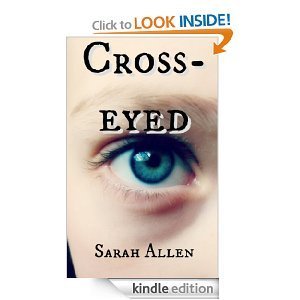
This weekend I released a short story collection, Cross-Eyed. Why spend your time with this book instead of, say, a piece of pie? Well I'll tell you.
1. It's free. Until the end of the month, the short story collection is absolutely free. Get it now, and get it instantly, while you don't have to pay for it.
2. It is multi-flavored. Choosing flavors is hard. You want apple-pie. No, pumpkin. No, pecan. In this short story collection you can have them all! Because it's a collection, there are several stories, all with their own unique flavor, and you get to enjoy them all.
3. It won't make you fat. Calorie free! Can't say that for a piece of triple-berry. And you might even read it on the treadmill...
4. It will last long-term. A piece of pie, though enjoyable, is gone once you've eaten it. It's a one time thing. My short story collection is yours forever. You can come back to it, share it, and it will never be gone.
5. It won't go bad during a nine hour car drive or three hour layover. Hopefully most of us are able to take advantage of these weeks while summer begins to wind down. While you take your trips, a piece of lemon meringue won't last in the trunk. But Cross-Eyed will. It will last your whole trip and never sour. At least, I sure hope not.
So there you have it. Reasons why you should invest in my collection instead of a piece of pie. Or maybe you might as well have both. A couple other things, before I go. First, huge, huge thank you to Alex Cavanaugh for the blog shout-out today, and to everyone else whose taken the time to mention the collection on Facebook and Twitter. I really can't tell you how grateful I am for that support. And lastly, just a reminder, because I've been asked (ok, by my Grandma, but still...) that even if you don't have a Kindle you can still read Crosss-Eyed on a Kindle app on your iPad or iPhone, or get it on your computer desktop, and since for the next few days it's free, you might as well, right?
Anyway, thanks again for all your support. I am super excited to have something out there for you guys. I really do hope you enjoy it as much as you would a moist piece of pumpkin pie with whipped cream on top. Try it out, I would love to know what you think :)
And dang it...now I'm hungry.
Sarah Allen
Published on July 29, 2013 03:30
July 27, 2013
Release of new short story collection, 'Cross-Eyed'!!!
Yay!!! Guys I am so excited. I just kept feeling like I really need to have some fiction out there, and now I do.
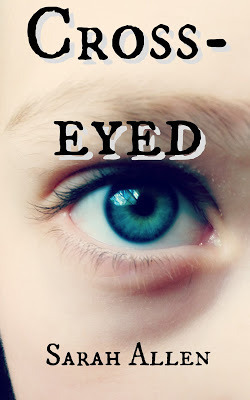
Please enjoy my short story collection, Cross-Eyed , for FREE now through the end of the month. I'm not organizing any big blog tours or cover reveals or anything like that, because I just wanted this to be out there more than anything, but if you like the collection then some mentions on Facebook or Twitter or some reviews would be very, very much appreciated.

Please enjoy my short story collection, Cross-Eyed , for FREE now through the end of the month. I'm not organizing any big blog tours or cover reveals or anything like that, because I just wanted this to be out there more than anything, but if you like the collection then some mentions on Facebook or Twitter or some reviews would be very, very much appreciated.
Published on July 27, 2013 03:30
July 24, 2013
Whats the Hardest Type of Character for You To Write?
I find this a really interesting question. I think it says a lot about the writer.
We all need to relate to our characters, and I think there are just people we relate to much more easily than others.
For me personally, the characters that I find hardest to write means that I will probably never be a very good classic romance writer. Classic in the sense of normal, traditional. Because those stories usually require confident, hunky people, and that is hard for me. The young, hot, popular guy who is the heart-throb of so many movies and books. In other words:

I can't decide if it would be harder for me to write the lead quarterback or his head cheerleader girlfriend. I am much more comfortable with quirk. Characters who aren't quite comfortable in their own skin, who feel weird, who maybe don't have too many friends. I'm not saying any type of character is inherently better than any other, I'm just saying certain characters come easier for certain writers. I just don't see Taylor Lautner fitting in one of my stories anytime soon. Mark Ruffalo maybe :)
So now what. I don't know about you guys, but when someone says I "don't do" something, even if that someone is myself, the contradictory wave rises in me and I think, "Oh yeah? Watch me." Who needs limitations, right? But if we're not going to let ourselves be restricted by these uncomfortable characters, how do we deal with them? I've thought of two ways:
First, work with them anyway. So Traditional Football Hero is my weak spot. I'll think up a short story for that character and try it out. You don't have to stay with the character for more than a day, but it could be a good way to stretch some creative muscles.
Or else, quirk them up. As in, morph them into something your more comfortable with. Maybe I start with Traditional Football Hero but actually he's super shy and secretly hates sports. Or maybe he's a total jerk and ends up being the true antagonist, a la Doctor Horrible's Sing-a-long Blog. I'd be comfortable working with that :)
Your turn. What would be the hardest character type for you to write? Do you think trying them out in a short story or novella would be a valuable exercise?
Sarah Allen
We all need to relate to our characters, and I think there are just people we relate to much more easily than others.
For me personally, the characters that I find hardest to write means that I will probably never be a very good classic romance writer. Classic in the sense of normal, traditional. Because those stories usually require confident, hunky people, and that is hard for me. The young, hot, popular guy who is the heart-throb of so many movies and books. In other words:

I can't decide if it would be harder for me to write the lead quarterback or his head cheerleader girlfriend. I am much more comfortable with quirk. Characters who aren't quite comfortable in their own skin, who feel weird, who maybe don't have too many friends. I'm not saying any type of character is inherently better than any other, I'm just saying certain characters come easier for certain writers. I just don't see Taylor Lautner fitting in one of my stories anytime soon. Mark Ruffalo maybe :)
So now what. I don't know about you guys, but when someone says I "don't do" something, even if that someone is myself, the contradictory wave rises in me and I think, "Oh yeah? Watch me." Who needs limitations, right? But if we're not going to let ourselves be restricted by these uncomfortable characters, how do we deal with them? I've thought of two ways:
First, work with them anyway. So Traditional Football Hero is my weak spot. I'll think up a short story for that character and try it out. You don't have to stay with the character for more than a day, but it could be a good way to stretch some creative muscles.
Or else, quirk them up. As in, morph them into something your more comfortable with. Maybe I start with Traditional Football Hero but actually he's super shy and secretly hates sports. Or maybe he's a total jerk and ends up being the true antagonist, a la Doctor Horrible's Sing-a-long Blog. I'd be comfortable working with that :)
Your turn. What would be the hardest character type for you to write? Do you think trying them out in a short story or novella would be a valuable exercise?
Sarah Allen
Published on July 24, 2013 03:30
July 23, 2013
The Number One Key to Effectiveness in Social Media
 I want to boil things down today.
I want to boil things down today.There are so many posts about social media, obviously. But lately I feel like I've read some really excellent posts (not the least of which is this one by the ever-genius Anne R. Allen) about getting through all the passe, irrelevant-to-the-online-age advice to what really works in modern social media.
The great metaphor in Anne's post is in thinking of Twitter (and other social media sites) like a telephone. You pick up when you want to, to people you want to talk to. You call specific people with specific news, you don't randomly cold-call the entire phone book. (If you do...well, that's another blog post.) I think that's a perfect analogy. It highlights what I think all the best posts about social media marketing are telling us: it's all about relationships.
And I think it's clicked for me lately because it's been broken down even more. It's all well and good to say it's about relationships, but relationships can mean a wide variety of things, both positive and negative. What does it mean practically, for every day social media use in my writing career? The light-bulb moment happened for me when I put in a different word.
Effectiveness in social media is all about responses.
That's right. You responding to other people. Not you putting your book cover on Pinterest, not you carefully coordinating tweets about your latest release, not you getting more likes on your Facebook page. I'm not saying those aren't important, and I'm as obsessed about it all as anyone. But the number one strategy, the most effective thing, is your responses.
Your responses to tweets from writer friends. Your mentioning someone else's blog post on your Facebook page. Your repinning and commenting on your friends Pinterest boards. Your highlighting blog posts by other writers on your own blog. Someone sees you retweeted them, they remember a funny thing they saw on your blog last week, and they check out your book. Whatever platforms you use, you reaching out and responding to what other people are saying is what's really going to get you connections. Everyone likes to talk about themselves, everyone likes to be listened to. So if you make an effort to respond to people and give them that listening friend, they are much more likely, when the time comes, to return the favor.
Social media has never been the best for mass marketing, and anybody who tells you otherwise is an exception or wrong. Algorithms and luck will take you much farther than any social media platform can do. But what social media can do is get you those connections, those relationships, that will not only lend you wisdom and support, but might just be the crew that can get the ball rolling. This social media response thing is definitely a slow, brick-by-brick process, but I personally think it's worth the effort. This is one topic where I'm definitely thinking this through for myself, and hope/want to do much better, become much more involved, in the future.
Do you think social media is worth it in this sense? What is your favorite type of response to get on social media? Blog comments? Repins? Mentions on Twitter?
Sarah Allen
Published on July 23, 2013 03:30
July 22, 2013
Top 10 Writerly Places to Beat the Heat
Has the heat been wearing on everyone else as much as it has me? Heat is not my favorite. And humidity is not fun for straight-haired people, let me tell you. Obviously the best thing for us to do is stay in an air-conditioned house and write. But as far as getting out of your air conditioned house, here is a quick list of places for us writers to go to get ideas, have fun, and keep cool.
Movie Theaters. Anybody seen The Way Way Back? Oh my word go.Community Theatres. Fun to check out, great way to support your community. And stay inside.Museums. Most places have some really cool places. And often they're free.Library. Duh. Any better place? I don't think so :)Bookstores. Used or otherwise. Not only will keep you cool, but you never know what treasures you will find.Meetups. Use Meetup.com to find book groups or other writerly gatherings and join. Sometimes they even provide free food :)Literary Places. Go to the Poets and Writers Literary Places database and see if there are any near you.Cave hunting. I know not everywhere has caves, but if you have any around, they're sort of inside, right? And who knows what ideas you might inspire.Community classes. Check local libraries or universities and see if any community events are going on. What better time to take an underwater basket weaving class?Eventbrite. Use Eventbrite.com to find all sorts of lectures, exhibits, conferences, all sorts of things. This is one I want to start using more often, because there are seriously some great things going on out there. Many of them in the air conditioned indoors.There you have it. Just a quick list of ideas for when you want to get out but keep cool. Hope your summer is going well despite the heat. And I hope you're writing.
Any other ideas to add to this list?
Sarah Allen
Movie Theaters. Anybody seen The Way Way Back? Oh my word go.Community Theatres. Fun to check out, great way to support your community. And stay inside.Museums. Most places have some really cool places. And often they're free.Library. Duh. Any better place? I don't think so :)Bookstores. Used or otherwise. Not only will keep you cool, but you never know what treasures you will find.Meetups. Use Meetup.com to find book groups or other writerly gatherings and join. Sometimes they even provide free food :)Literary Places. Go to the Poets and Writers Literary Places database and see if there are any near you.Cave hunting. I know not everywhere has caves, but if you have any around, they're sort of inside, right? And who knows what ideas you might inspire.Community classes. Check local libraries or universities and see if any community events are going on. What better time to take an underwater basket weaving class?Eventbrite. Use Eventbrite.com to find all sorts of lectures, exhibits, conferences, all sorts of things. This is one I want to start using more often, because there are seriously some great things going on out there. Many of them in the air conditioned indoors.There you have it. Just a quick list of ideas for when you want to get out but keep cool. Hope your summer is going well despite the heat. And I hope you're writing.
Any other ideas to add to this list?
Sarah Allen
Published on July 22, 2013 03:30
July 19, 2013
New Video Poem and a Funnies
Hey guys :)
So I've put up a new video poem. I have a lot of fun with these and hope to make them more consistently in the future. I'm not always going to have something as epic as a lightning storm to film, but hopefully something.
Anyway, here goes. I'd love to get your feedback.
And to send you on your weekend with a chuckle:
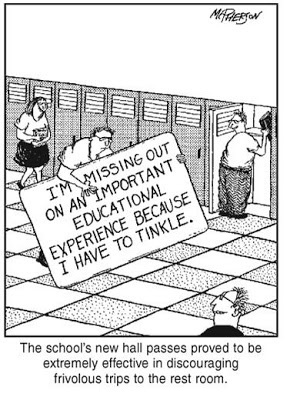 Have a fabulous weekend everybody!
Have a fabulous weekend everybody!
Sarah
So I've put up a new video poem. I have a lot of fun with these and hope to make them more consistently in the future. I'm not always going to have something as epic as a lightning storm to film, but hopefully something.
Anyway, here goes. I'd love to get your feedback.
And to send you on your weekend with a chuckle:
 Have a fabulous weekend everybody!
Have a fabulous weekend everybody!Sarah
Published on July 19, 2013 03:30
July 18, 2013
Why the J.K. Rowling Pseudonym Story is NOT Depressing News for Aspiring Writers
 [Image Source]
[Image Source]So we've all heard the news about J.K. Rowling publishing a book under a pseudonym, right? The Cuckoos Calling by "Robert Galbraith". Slash J.K. Rowling.
Anyway, ever since the news broke I've been seeing all these articles about what a terrible sign this is for newbie and aspiring authors. People saying stuff like OH MY WORD EVEN ROWLING CAN'T SELL BOOKS. People saying that if even Rowling can't have a hit, what's there for the rest of us?
I think this is totally bologna. Totally the wrong way of looking at it.
What I think this actually does is show how level is the playing field. Let's not use Harry Potter as the example for success for a second. Let's define writerly success as having a book accepted, published, be critically well-received and sell moderately well. We'd all be fine with a career made of that, right? So J.K. Rowling did that plus some with Harry Potter, obviously. And then she did it again.
As far as I know The Cuckoos Calling sold okay, and the critics liked it much more than Casual Vacancy. Honestly I think this is a brilliant move by Rowling, and a chance for her to get some unbiased response, some feedback without her name getting in the way.
I think what this whole thing proves is that you don't have to be J.K. Rowling to be successful. Robert Galbraith is us, is a newbie author who worked hard and produced a good book, got it published, and had some people like it. But comparing it to Harry Potter of course makes it look like a failure.
All in all, I applaud Rowling for a smart move. So maybe the level of success for this book is not the same level as Harry Potter. Maybe it's not even enough to found a career. But its a great place to start one, and you don't have to be J.K. Rowling to do it.
Thoughts? What do you think about this new development?
Sarah Allen
Published on July 18, 2013 03:30
July 17, 2013
Writing Lessons from Charlie Chaplin and City Lights
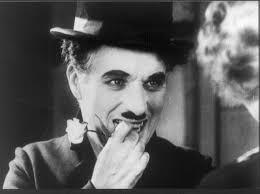 Am I a nerd for spending my Saturday night showing myself a silent movie? Maybe. But it was so worth it!
Am I a nerd for spending my Saturday night showing myself a silent movie? Maybe. But it was so worth it!So City Lights, from 1931, is Charlie Chaplin's magnum opus. It was the end of the silent movie era and "talkies" had started popping up and Chaplin wanted to prove that silent films were just as powerful and effective as they had always been and I think he did just that. I thought this movie was full of heart and so fun and adorable and well-plotted that the 20s/30s quirkiness not only didn't bother me, but made it that much funner.
So what can we writers learn from Chaplin?
1. Be absolutely clear about what's going on. Maybe we have the advantage of dialog, but we need to make sure we're being as clear as Chaplin was without it. Maybe the action and reactions aren't exaggerated like they were in silent films, but that exaggeration made it crystal clear what was going on and we need to be less crisp.
2. Humor makes drama more poignant. I believe that almost any story, regardless of genre, can be elevated with a little dash of humor. Even if you're writing an uber-dramatic thriller, adding moments of humor can do several things for you. It gives the reader time to breathe and sort of register everything that's going on. I believe it can make your story feel less cheesy or cliche. And perhaps most important, it sets into beautiful relief the emotional moments of more heightened drama. One of the best examples of this in the world is the movie Life is Beautiful.
3. Role reversal is a very effective strategy. In this movie, Chaplin's tramp sees and falls in love with a beautiful, blind flowergirl. Through a string of intricate and slapsticktastic events he is able to basically be her benefactor, but at great cost to himself. Then at the end...well, I won't spoil the last scene, one that has been called one of the moments of highest drama in all of film. And for good reason. There is something so entirely satisfying about seeing a character receive true recompense.
4. Braid-style plotting. There are several stories going on throughout this film. The tramp still has the ultimate goal of winning the girl, but the movie moves between scenes. In the end, one plot thread effects another effects another until they all merge together into a dynamic conclusion that addresses all the different elements. Maybe this is a hard type of plotting to pull-off, but I don't know if much else can be as satisfying and jaw-dropping when it's done well.
5. Take it one step harder. For your characters, that is. The tramp finally gets a job around town cleaning up after carriage horses. Hard. We see him at an intersection watching a line of carriages drive by, a look of dismay on his face. Harder. But Chaplin doesn't leave it there. The tramp finally sees the last of the horses pass by. He turns to walk away. And there's an elephant. Make your characters deal with the biggest elephant you can find.
There you have it! If you can find this movie somewhere its definitely worth watching.
Any other Chaplin fans out there? What other lessons do you think he has for us?
One more thing. Today I am over at Scribbler's Sojourn, the blog of the beautiful, wise, and generous Terri Rochenksi, who is highlighting the Hitting the Wall post we had here a while ago. Head on over and show some love :)
Sarah Allen
Published on July 17, 2013 03:30
July 15, 2013
5 Characters With Their Pets
Sometimes it's our relationships with our animals that say the most about us. That includes our characters. Here are five characters with a unique variety of pets. See if you can get any ideas from them.


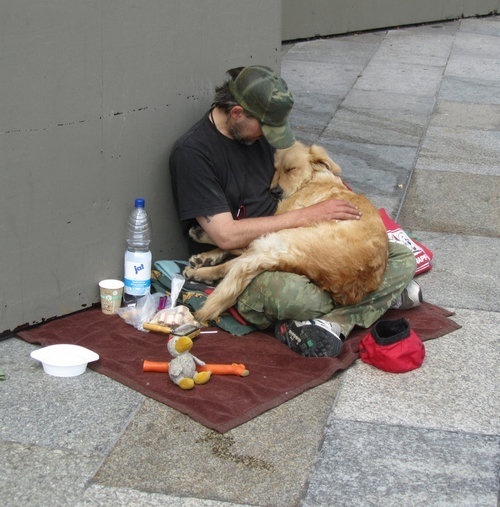

 Could you use any of these in a story? Which is your favorite?
Could you use any of these in a story? Which is your favorite?




 Could you use any of these in a story? Which is your favorite?
Could you use any of these in a story? Which is your favorite?
Published on July 15, 2013 03:30



